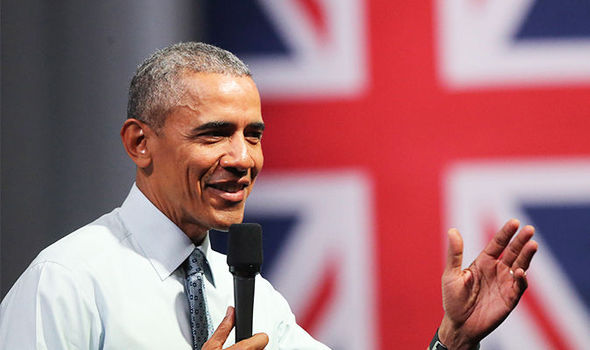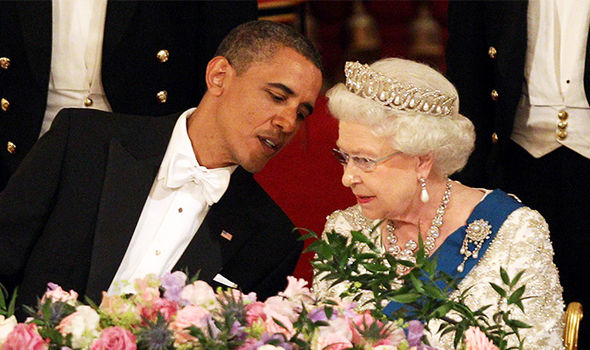Obama in Brexit U-turn as President’s administration praises UK’s ‘special’ bond with US

BARACK Obama has backtracked on his claims Britain would “go to the back of the queue” in waiting for a trans-Atlantic trade deal if it voted to leave the EU.
In a sensational U-turn, the US President’s administration is now claiming its “special relationship” with Britain “has not suffered” after the nation’s Brussels exit.
Washington is wary of twisting the knife into Britain’s economy, mainly because the US fears a bankrupt Britain would not be able to continue with its NATO payments.
America is trying to reassure global markets that Britain remains a major player on the world stage because if the UK’s economy crashes it will not be able to devote 2 per cent of its GDP to NATO’s defence programmes – such as the new fleet of nuclear submarines which form a key part of the West’s nuclear missile deterrent.
At a time of increasing threats from Putin’s Russia and murderous terrorist groups such as ISIS, it is feared a weak Britain could lead to greater global insecurity.
US treasury secretary Jack Lew and secretary of state John Kerry failed to repeat Obama's trade warning during their public appearances on Monday.
Lew did not rule out the possibility of separate talks with Britain once Europe and the UK agree on separation terms – but said a trade deal with the main EU body remains a priority.
Nicholas Burns, a former US ambassador to NATO, said: “The UK could become smaller and weaker. If that happens, then you wonder if they can sustain the defence spending and the effort to be globally oriented.
“That's what we worry about with Britain leaving. Britain was the strongest American partner inside the EU."
Some trade experts also said a deal on the US-European Trans-Atlantic Trade and Investment Partnership (TTIP) is now unlikely to happen for years without Britain at the table – which could open an opportunity for a separate deal with the UK.
Gary Hufbauer, from the Peterson Institute of International Economics, said: “"The 'back of the queue' statement will be forgotten by the next administration, if not sooner.
"In my view, TTIP is either dormant or dead in the wake of Brexit."
White House spokesman Eric Schultz added that the administration was "working through" how the Brexit vote would affect TTIP talks.
He said: ”If we have to start negotiating separately with the United Kingdom, that's going to start from a different vantage point, especially because we've had years of progress."
Schultz added that economic ties between the nations "remain strong and vibrant as they have been, and the special relationship had not suffered because of the vote”.
Политика конфиденциальности | Правила пользования сайтом










